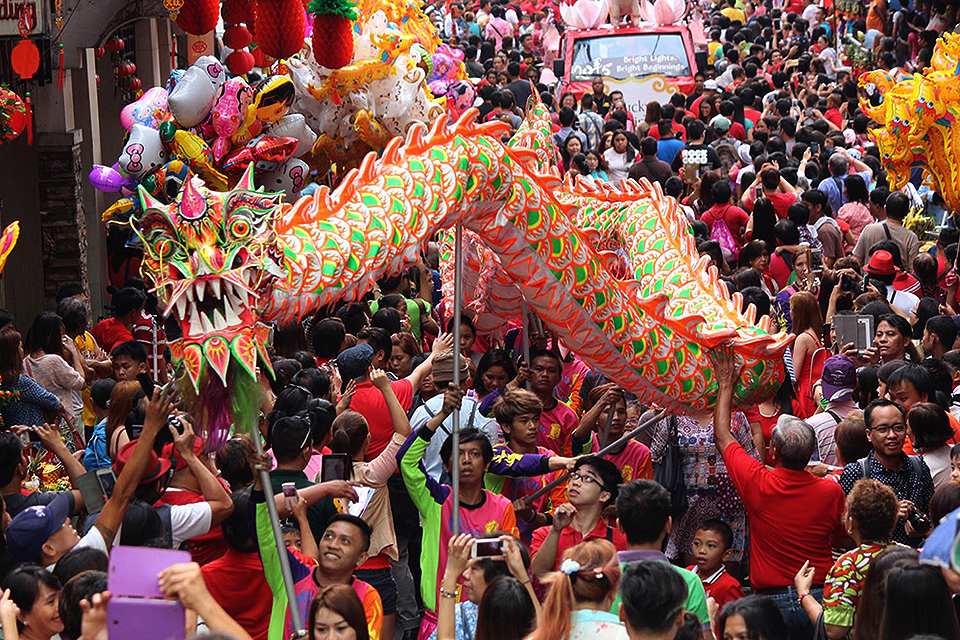Celebrating Culture and Prosperity
For the millions of Malaysians with Chinese heritage, Chinese New Year is the most celebrated holiday season. It is dated according to the Chinese lunar calendar and is also known as the "Spring Festival" and the "Lunar New Year." As a result, the date falls in either January or February on the western calendar. The Year of the Snake begins on January 29, 2025, which is also the first day of Chinese New Year. The Year of the Horse begins on February 17, 2026, which is also Chinese New Year. Regardless of their cultural background, many Filipinos celebrate Chinese New Year, which is a big holiday in the Philippines. Because of its strong historical, cultural, and economic roots, this tradition is significant to Filipino society. This event is widely observed because to the Chinese-Filipino (Tsinoy) community's substantial presence, historical ties between the Philippines and China, government acknowledgment, and the Filipinos' love of festivals.
The significant influence of the Chinese-Filipino population in the nation is one of the main causes of Filipinos' celebration of Chinese New Year. Chinese immigrants have lived in the Philippines for centuries, adopting their traditions and customs into Filipino culture. By celebrating the Lunar New Year with traditional practices like giving angpao (red envelopes), dancing like dragons and lions, and making lucky meals like tikoy (sticky rice cake), many Filipino-Chinese families continue to celebrate their history. Some of these customs have been embraced throughout time by non-Chinese Filipinos as well, who think they will bring luck and prosperity. The government's recognition of Chinese New Year as a special non-working holiday has further enhanced its significance in the Philippines. In 2011, the government officially acknowledged the contributions made by the Chinese-Filipinos to the nation's progress by declaring the Lunar New Year a holiday. This approach boosted the celebration's significance in Philippine society by permitting more Filipinos to take part. Due to its economic significance as well as its cultural and historical influences, Chinese New Year is widely observed. Numerous businesses, especially malls, restaurants, and retail stores, take advantage of the festivities by offering special discounts and offers and mostly of these establishments are owned by chines-filipino people. Many Filipinos are drawn to this commercial element, which makes the holiday a thrilling occasion for both companies and customers. Lastly, Chinese New Year is a celebration that wonderfully fits with the festive culture of the Philippines, which is recognized for its love of festivals and celebrations. Filipinos welcome every chance to rejoice with loved ones, whether it's Christmas, New Year's, or regional fiestas. Chinese New Year's bright colors, fireworks, and energetic performances are in line with the joyous and social Filipino culture.
The Philippines' rich cultural diversity and historical ties to the Chinese-Filipino population are demonstrated by the country's celebration of Chinese New Year. Since many Filipinos enjoy the customs, celebrations, and business opportunities connected to the festival, its significance surpasses nationality. Chinese New Year is a highly celebrated holiday in the Philippines due to a combination of factors, including the influence of Chinese heritage, government acknowledgment, commercial impact, and the Filipinos' genuine love of festivities. Regardless of background, this custom keeps Filipinos united, appreciative of their cultural history, and joyful despite the passing of time. In the end, Chinese New Year is a lovely reminder of how cultures can live together peacefully to build a more lively and welcoming community.
References:
-https://publicholidays.com.my/chinese-new-year/#google_vignette
-https://asiasociety.org/philippines/chinese-new-year-celebrated-philippines
Picture References:
-Cabahug, R. J. (2020, January 25). Chinese New Year in the Philippines—and its relevance to China-PH relations. Atenews. https://atenews.ph/chinese-new-year-in-the-philippines-and-its-relevance-to-china-ph-relations
-Mysak, S., & Nicdao, J. (2025, January 10). Chinese New Year 2025 in Philippines. Rove.me. https://rove.me/to/philippines/chinese-new-year
-GMA News. (1970, January 1). ‘Kiong hee!’: Chinese New Year celebrations, traditions in Metro Manila. GMA News Online. https://www.gmanetwork.com/news/lifestyle/artandculture/441198/kiong-hee-chinese-new-year-celebrations-traditions-in-metro-manila/story/
-https://asiasociety.org/philippines/chinese-new-year-celebrated-philippines
Picture References:
-Cabahug, R. J. (2020, January 25). Chinese New Year in the Philippines—and its relevance to China-PH relations. Atenews. https://atenews.ph/chinese-new-year-in-the-philippines-and-its-relevance-to-china-ph-relations
-Mysak, S., & Nicdao, J. (2025, January 10). Chinese New Year 2025 in Philippines. Rove.me. https://rove.me/to/philippines/chinese-new-year
-GMA News. (1970, January 1). ‘Kiong hee!’: Chinese New Year celebrations, traditions in Metro Manila. GMA News Online. https://www.gmanetwork.com/news/lifestyle/artandculture/441198/kiong-hee-chinese-new-year-celebrations-traditions-in-metro-manila/story/





Comments
Post a Comment